What points on the body reduce the pulse. How to lower the pulse? Methods for slowing the heart rate: drug therapy and recipes from the people.
A stressful situation arose, you were upset, there is a feeling that your heart will jump out of your chest? Rapid pulse - more than a hundred beats per minute - weakness and dizziness indicate an attack of tachycardia. To cope with it, to normalize the heartbeat will help special drugs. Tablets from the heart regulate the rhythm, reduce the pulse, improve the condition.
How to treat tachycardia
During an attack of tachycardia, due to chaotic contractions, uneven blood flow into the ventricles of the heart occurs. This causes malfunction and can lead to heart failure. Consideration should be given to the choice of medications for treatment. Pills for tachycardia and palpitations are prescribed taking into account the reasons that caused increased heart rate. Self-medication in this situation is unacceptable. Particular attention should be paid to the treatment of pregnant women, because there are many contraindications.
Treatment of tachycardia with pills depends on the causes that caused the heartbeat. In the sinus form of the disease, the root of which is stress, heavy physical exertion, sedatives are prescribed - Relanium, Seduxen. Ventricular tachycardia is treated with antiarrhythmic drugs. With a paroxysmal variety of the disease, tablets do not help - injections are required for an accelerated effect. It must be borne in mind that only a cardiologist prescribes treatment. Drugs for tachycardia of the heart, useful in one form of the disease, can be dangerous in another.
Rapid heartbeat during pregnancy
When a woman is expecting the birth of a child, the body experiences double stress. Tachycardia at this time is common. If it is caused by the nervousness of the mother, then it quickly passes - you just need to calm down. For the development of the fetus, prolonged seizures are dangerous. What to take with heart palpitations during pregnancy, when many drugs are prohibited? Doctors prescribe safe:
- magnesium preparations that restore the tissue of the heart muscle - Panangin, Magne B6;
- sedative tablets - Valerian, Motherwort;
- drugs to reduce the pulse - Propranolol, Verapamil.
Under reduced pressure
Pills for tachycardia and palpitations need to be taken urgently during an attack if you have low blood pressure. If at this time the vascular tone is not increased, cerebral edema occurs. The difficulty is that pills that reduce heart rate often lower blood pressure. Careful selection of drugs is required. How to reduce the pulse at low pressure? Cardiologists in such a situation prescribe:
- Grandaxin - has a calming effect;
- Mezapam - relieves nervous excitement;
- Phenazepam - has an anticonvulsant effect.
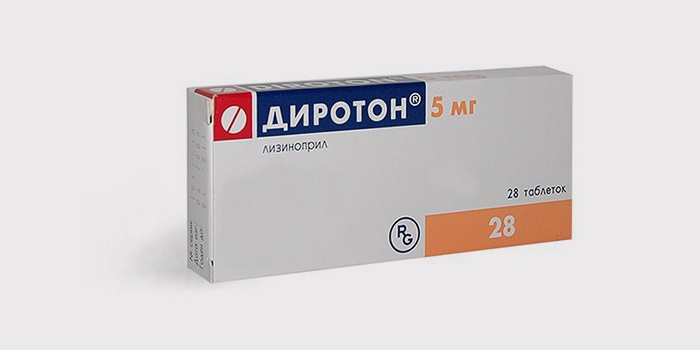
At elevated pressure
What to take with tachycardia for people with high blood pressure? In this case, the main task is to reduce the tension in the vessels so as not to cause them to burst. If you do not take palpitation pills regularly, you may experience a depressive state, loss of strength and cessation of cardiac activity. Attacks of tachycardia at high pressure are rare, but they are very dangerous. In this situation, help:
- Diroton;
- Corinfar;
- Enap;
- Verapamil.
Micronutrients for the heart
Vitamins and microelements have an important effect on the work of the heart and blood vessels. Their deficiency can cause serious problems. Stress, malnutrition, physical inactivity lead to a violation of the heartbeat, rapid pulse. Under these conditions, vitamin-mineral complexes are used for prevention and treatment. When combined with moderate exercise, proper nutrition They help regulate the work of the heart.
The list of minerals that support the work of the heart and blood vessels includes:
- magnesium, which improves metabolic processes, prevents the formation of blood clots;
- calcium, which normalizes heart contractions;
- phosphorus, which helps transmit nerve impulses;
- selenium, which protects the tissues of the heart, the walls of blood vessels;
- potassium, which conducts nerve impulses.
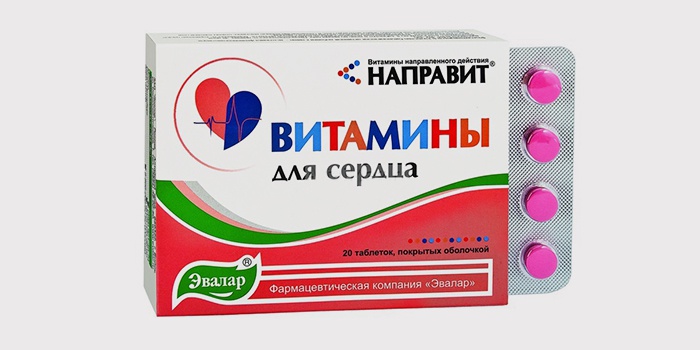
With tachycardia and palpitations, vitamin intake plays an important role. They help protect health, restore the heart. Vitamins support its work, improve the condition of blood vessels. The list includes:
- C - strengthens the walls of blood vessels, myocardium;
- A - improves metabolic processes;
- E - protects the heart tissue from damage;
- P - helps to strengthen the walls of blood vessels;
- F - strengthens the heart tissue;
- B 1 - stimulates heart contractions;
- B 6 - normalizes lipid metabolism.
These heart-healthy substances are used in the form of vitamin-mineral complexes. Popular drugs for palpitations:
- Asparkam - has an antiarrhythmic effect, can be prescribed as an independent remedy, in the form of tablets for tachycardia.
- Vitrum Cardio - activates lipid metabolism.
- Directs - improves contraction of the heart muscle.
- Cardio Forte - treats heart pathologies.
Antiarrhythmic drugs
Arrhythmia and tachycardia cannot be treated independently. Medicines that help reduce rapid heart rate are used only as directed by a doctor. Examination, correct diagnosis is required. It is necessary to identify contraindications to the use of drugs. For each case, it is important to use your own tablets for tachycardia and palpitations. The task of antiarrhythmic drugs when exposed to the patient's body is to restore the rhythm. It is solved with:
- beta-blockers;
- calcium channel inhibitors;
- potassium blockers;
- membrane stabilizing drugs.
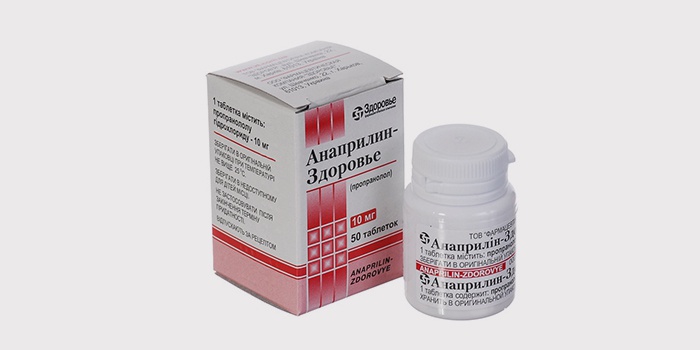
Beta blockers
Among the pills for tachycardia and palpitations, beta-blockers occupy special place, and all thanks to the active effect on the patient's body. Preparations Egilok, Anaprilin, Ritmilen, are taken as a course. When sick, they help:
- reduce the strength and frequency of heart contractions;
- relax the walls of blood vessels;
- reduce pressure;
- reduce oxygen consumption by heart muscle cells;
- improve exercise tolerance;
- reduce the risk of developing arrhythmias.
calcium channel inhibitors
Drugs used in palpitations that prevent calcium from entering vascular cells by expanding them are calcium channel inhibitors. When using these tablets, blood flow improves, muscle tone decreases, and the normal rhythm of the heartbeat is restored. The drugs are taken under the strict supervision of a cardiologist, because a sharp decrease in heart rate is possible, which can cause heart failure. Recommended drugs:
- Corinfar;
- Foridon;
- Verapamil.
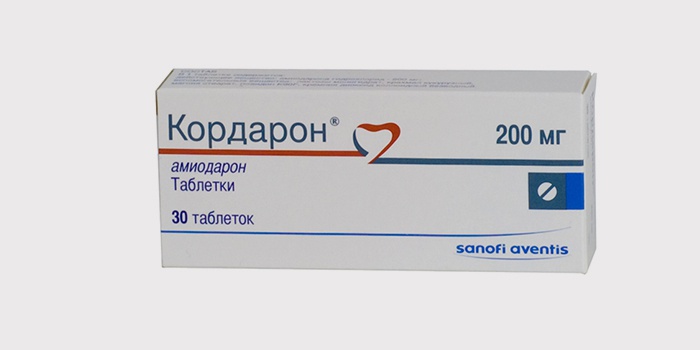
Potassium blockers
Great help with a rapid pulse is provided by pills to reduce the pulse - potassium blockers. They slow down the electrical processes that take place in the heart. Medicines have a slow effect on the body, have many contraindications. Drugs that affect the heartbeat, which are prescribed by a doctor:
- reduces the pulse in case of ventricular tachycardia - Amiodarone;
- with periodic occurrences of a pulse disorder - Sotalol;
- in case of atrial flutter - Dofetilide;
- with gastric and atrial fibrillation - Kordaron.
Membrane stabilizing agents
The reaction of the body to the drugs of this group is expressed in the fact that the heart begins to beat more slowly. This is due to the fact that the drug for tachycardia in this case disrupts the transport of sodium, potassium and calcium ions through the membrane of the heart fibers. At the same time, their properties change - contractions are weakened, excitability decreases. Under these conditions, the ability of the heart to independently excite electrical impulses for muscle contractions decreases. Membrane stabilizing agents prescribed by cardiologists:
- Quinidine;
- Lidocaine;
- Novocainamide;
- Disopyramide.
Video: how to lower your heart rate
A high heart rate is usually the result of some kind of illness. But there are times when an increase in heart rate occurs due to physiological processes resulting from various factors. However, tachycardia (rapid pulse) always gives a person a serious inconvenience, and it often goes away, accompanied by heart pain, shortness of breath, and anxiety.
Tablets
There are certain drugs that help normalize and reduce the pulse. But before you start using these drugs, you need to figure out what caused the pulse to increase.
If these are temporary causes - stress, overstrain, excessive physical activity, it is very important to just relax, calm down. To do this, lie down, take in tablet form. Such measures are usually enough to normalize the pulse. You can also supplement valerian tablets with medicinal herbs with a calming effect - for example.
There are many drugs for the treatment of tachycardia. There are pills designed to eliminate symptoms - symptomatic treatment. There are drugs that have a sedative (sedative) property. In all cases, what exactly to apply - only the doctor can decide.
The group of drugs with a sedative effect includes natural and synthetic drugs.
Natural preparations:
- Valerian. The medicine is available in tablet form, as well as in the form of tincture for alcohol. The effect comes with prolonged use. The medicine has some contraindications, and in case of an overdose, the opposite effect may occur - overexcitation;
- . It is indicated for atrial fibrillation, paroxysmal tachycardia. Reduces excitability, reduces heart rate;
- Persen. Means with a moderate sedative effect. Persen contains mint. Melissa, valerian. The drug reduces irritability, fatigue, anxiety and nervousness, helps to normalize the pulse, fall asleep quickly;
- Motherwort. It has long been used as a means of normalizing the nervous system. Motherwort reduces heart rate, relieves insomnia and has almost no side effects.
- Evasive Peony Tincture. The tincture relieves nervous tension, improves mood, improves sleep, and calms the pulse.
Synthetic drugs:
- Diazepam. Trade name Relanium, or Relium. The drug has a sedative, anticonvulsant, hypnotic, amnestic action;
- Phenobarbital. Sleeping pills are used in small doses.
Drugs for tachycardia
These are the so-called antiarrhythmic drugs. They are different in their mechanism of action, therefore, they are prescribed based on the type of tachycardia.
- Ritmilen. Indications - cardiac arrhythmias of atrial and ventricular origin;
- Ethacizine. It is indicated for supraventricular and ventricular and tachycardia.
- Anaprilin, or propranoprol. Indicated for high blood pressure, frequent heart contractions in heart disease.
- Verapamine. Indications - supraventricular tachycardia.
- Flecainite. Shown as the prevention of ventricular arrhythmias and paroxysmal tachycardia.
Normally, a heartbeat is neither heard nor felt. If you have begun to worry about the rhythm of your heart, you should think about how to lower your heart rate at home. fast. Frequent pulse, malaise, perspiration, heaviness during breathing - all this can be signs of tachycardia and incipient problems with the heart or blood vessels. It is possible that the condition is caused by physical or emotional overload, and after the cause is eliminated, the attack will not recur.
Medicines that slow down the heart rate.
If all your feelings indicate that the situation needs to be corrected as quickly as possible, you should contact medicines. Suitable for you:
- Validol.
- Nitroglycerine.
- Sustaq.
- Metoprolol.
- Nifedipine.
- Verapamil.
- Panangin.
The mechanism of action of each drug is different, and it would take too much time to describe them. We can only say that they affect the heart muscle and blood vessels that deliver blood directly to the heart. The impact is through the nervous system - the number of heart contractions decreases, the diameter of the vessels and the amount of delivered blood increase. If there is a difference between the amount of blood needed by the heart and the amount actually supplied, it may begin angina attack. Most of the drugs on the list reduce this difference and eliminate attacks of chest pain. But all medicines have contraindications and side effects, so read the instructions carefully beforehand or consult your doctor.
During the next attack, you will not be up to it.
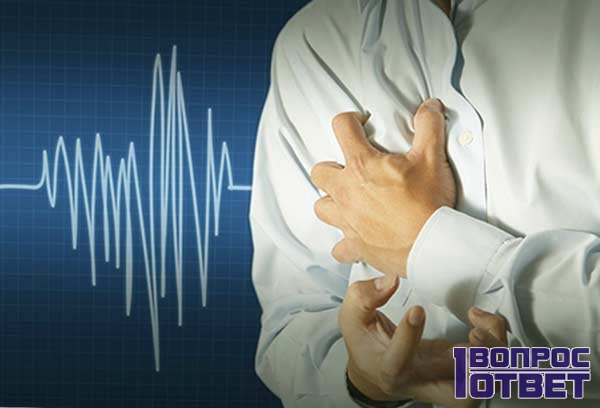
How to reduce the pulse at normal pressure.
Usually, a high heart rate is accompanied by a high level of blood pressure. But this happens only in cases where palpitations are associated with heart disease. If the body is healthy and tachycardia- response to increased load, pressure can remain within normal limits. In such conditions, an increase to hundreds of beats per minute does not have a special effect on blood pressure. In this case, it is not only undesirable to use drugs, but it also makes no sense, because all the structures are in order. They just experience overload, and in order to to deal with it:
- Unfasten outer clothing, free the chest. This action will help the person breathe easier and deeper.
- Open all windows in the room if weather permits. A good level of ventilation will facilitate the delivery of oxygen to the heart.
- Put a cold compress on your head. It can be improvised, from a towel or a scarf.
- Try to hold your breath while taking a deep breath.
- Lie down on a flat surface.
The last point will give an effect only after about thirty minutes, but a cold towel and fresh air will put in order in ten minutes.
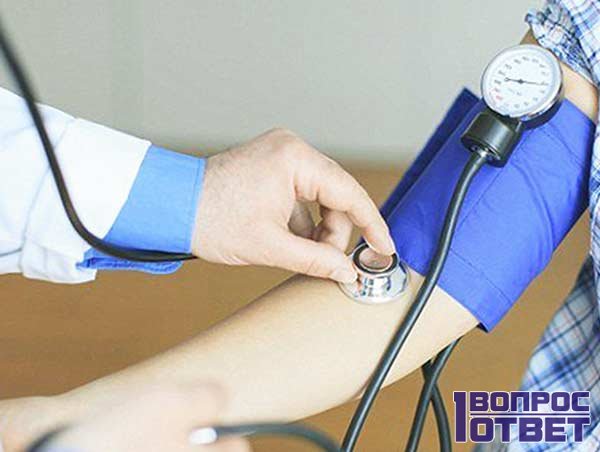
Once the attack of tachycardia is over, most people usually forget about it, until a new manifestation. The level of care for their own health leaves much to be desired. If you're a little more forward-thinking, use these advice:
- Avoid tonics and substances. We'll have to forget about coffee, alcohol and tobacco for a while. If you are taking medication, please consult your doctor.
- reset excess weight . Often it is he who is the cause of such a complication. There are many diets and exercise programs designed specifically for weight loss.
- Get started exercise if your life is connected with office work. For starters, give up the elevator, regular climbing the stairs will already be a good deposit.
- Normalize your daily regime. Lack of sleep and night work will take a toll on your health.
- Take care of your water-salt balance. To do this, it is necessary to keep records of the consumed water and salt. Sodium takes an active part in heart contractions.
- Reduce the amount in your life emotional turmoil. If for some reason it is impossible to achieve such a result, at least take valerian or hawthorn tincture. Dependence will not develop, but the nervous system will calm down.
These preventive measures will not help to quickly normalize the heart rate. But if you follow all the rules, you can safely forget about new attacks.
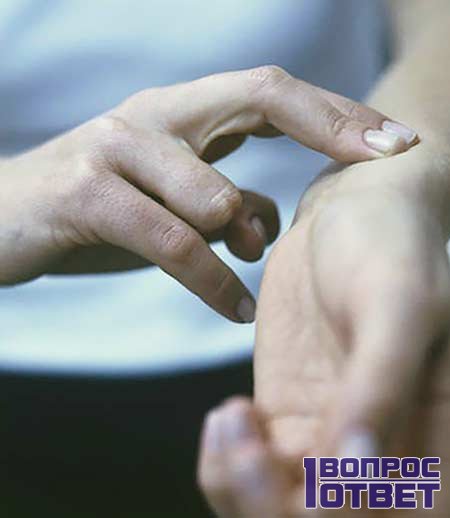
Three useful reflexes to reduce the heart rate at home
In fact, our body is an amazing structure and everything in it is interconnected. You must have heard about reflexes when one action affects the whole organ system. For example, if you press on the eyeballs, the heartbeat will slow down. In childhood, some used this opportunity as a joke, but in an older age, this technique can help. get rid of arrhythmias. It is better to press on your own, so as not to overdo it.
It takes 10-20 seconds to feel the first effect.
Another easy way- take a deep breath and try to exhale, but with your mouth closed and your nose covered. As in the first case, you stimulate the part of the nervous system that slows down the rhythm of the heart muscle. Do not try to take several breaths, this can lead to hyperventilation - the intake of excess oxygen. It is fraught with an increase in the speed of the heartbeat.
But third option not always acceptable, but it will have to be resorted to when all else has failed. You can activate the parasympathetic system, which triggers bradycardia (slowing the rhythm), with the help of a gag reflex. This is really effective, but you can only use this method if you are at home.
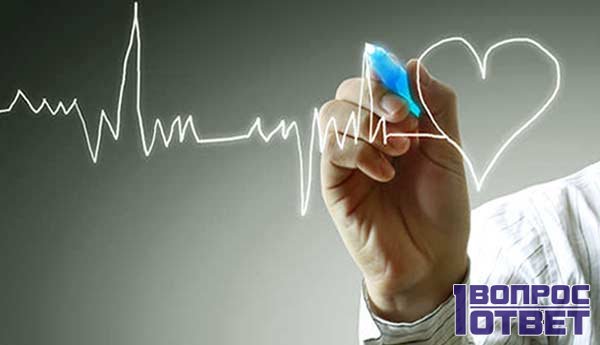
The need for an examination.
If your heart beats faster, then it is not capable of providing all the organs with a sufficient amount of blood with a normal number of contractions. A good reason to think about the health of the heart itself. Indeed, if such a condition occurs at rest, when you do not experience excessive stress, this may indicate changes in the structure of the heart muscle itself or the apparatus of the heart. Often the cause is a decrease in the diameter of the heart vessels due to violations in the walls. If problems occur regularly and have nothing to do with your schedule, urgently make an appointment with a cardiologist. ECG and examination by a specialist help establish the diagnosis for most patients.
In this article, we examined in detail how to lower your heart rate at home quickly. But we advise visit the doctor's office and receive the necessary treatment after diagnostic procedures.
Is it possible to quickly reduce a high heart rate? A rapid heartbeat and, accordingly, the pulse, occurs under the influence of various factors: physical activity, stress, infectious diseases, emotional overstrain, etc.
If the heart rate increases, this inevitably leads to an overstrain of the heart muscle, which is fraught with serious consequences.
Causes of tachycardia
The pulse is determined by the frequency of myocardial contraction and normally in an adult it is 70-80 beats / min. In children under the age of 7, the pulse is more rapid and is approximately 100-120 beats / min. In many respects, this indicator also depends on the age of the person. As a rule, in older people, the heart rate is high, which indicates the development of hypertension and other cardiovascular ailments.
What causes a high heart rate?
In addition, a high heart rate can be a symptom of the development of more serious diseases:
- cardioneurosis and tachycardia;
- heart failure and endocarditis;
- rheumatic heart disease and myocarditis;
- insufficiency of the aortic valve;
- anemia and thyrotoxicosis.
Symptomatic struggle with a high frequency of contraction of the heart muscle will not lead to recovery. Therefore, if a problem is detected, you should immediately seek help from a doctor for an accurate diagnosis.
Why is tachycardia dangerous?
A high pulse may indicate quite serious endogenous disorders.
Moreover, faced with this problem, a person may feel:
- constant anxiety;
- unreasonable panic attacks;
- shortness of breath
- low working capacity;
- drowsiness and fatigue;
- irritability.
If the pulse is not reduced in time, this can provoke hemodynamic failures in the body, which can lead to damage to blood vessels, in particular, to an increase in their permeability.
Moreover, a rapid heart rate creates a greater load on the heart muscle, which leads to such consequences:
- cardiopathy;
- myocardial infarction;
- fibrillation of the heart ventricles.
You can fight tachycardia at home, but only after consulting a cardiologist. Improper treatment can provoke complications and irreversible processes in the body.
Taking pharmaceutical drugs
How can you quickly lower your heart rate?
To stabilize the heart rate, you can use pharmacy products that have a sedative effect. They have practically no serious side effects, so they are available without prescriptions.
Some of the most effective and safe medicines include:
- "Valocordin";
- "Difenin";
- "Flecainide"
- "Valerian tincture".
If you are overweight, it is advisable to give yourself moderate physical activity. Weight loss will reduce the heart rate and reduce the load on the myocardium and blood vessels.
Home remedies for tachycardia
How to lower the pulse? Is it possible to stabilize the pulse at home?
The use of any pharmaceutical preparations should be agreed with a specialist. Indeed, even in the absence of direct contraindications, they can provoke side effects: drowsiness, lethargy, nausea, etc.
It is immediately worth noting that if tachycardia occurs for no particular reason, you should immediately consult a doctor.
If the heart rate increased due to emotional overstrain, severe stress, the following will help to cope with the situation:
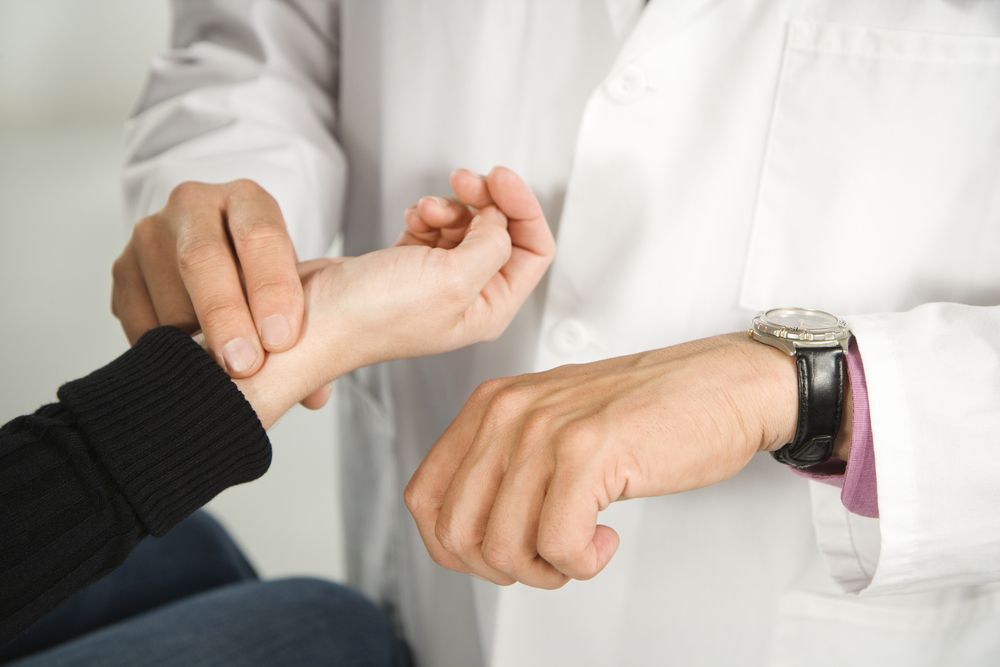
- Carotid sinus massage. Place your fingers on the area just above the thyroid cartilage. Massage the indicated area with light circular movements for 20 seconds;
- Green tea. Reduce the pulse will allow green tea with a small addition of milk. This drink stimulates the cardiovascular system and helps to stabilize the rhythm;
- Provocation of the gag reflex. Pressing a finger on the root of the tongue, you can provoke a gag reflex. Despite the exoticism of the method, it helps to lower the pulse very quickly.
The fight against tachycardia at home can only occur if it is known for certain that it is not provoked by endogenous causes. Any symptomatic treatment without finding out the reasons can end in failure.
An emergency way to deal with tachycardia
If the heart rate goes off scale for 200-220 beats / min., You need to immediately call ambulance and do the following:
- Provoke a gag reflex;
- Take a very deep breath and exhale quickly;
- With moderate force, press on the eyeballs in the area of \u200b\u200bthe inner corner;
- Make a neck massage in the area of the pulsation of the carotid artery.
If you do not lower your heart rate, this can lead to a myocardial infarction or stroke. In addition, in the home first aid kit for such cases, there should always be drugs that can reduce the heart rate.
Prevention
The frequency of myocardial contraction in the normal state in an adult is approximately 80 bpm. Exceeding this indicator inevitably leads to myocardial overstrain and the occurrence of cardiovascular pathologies.
To avoid this, you need to follow these preventive recommendations:
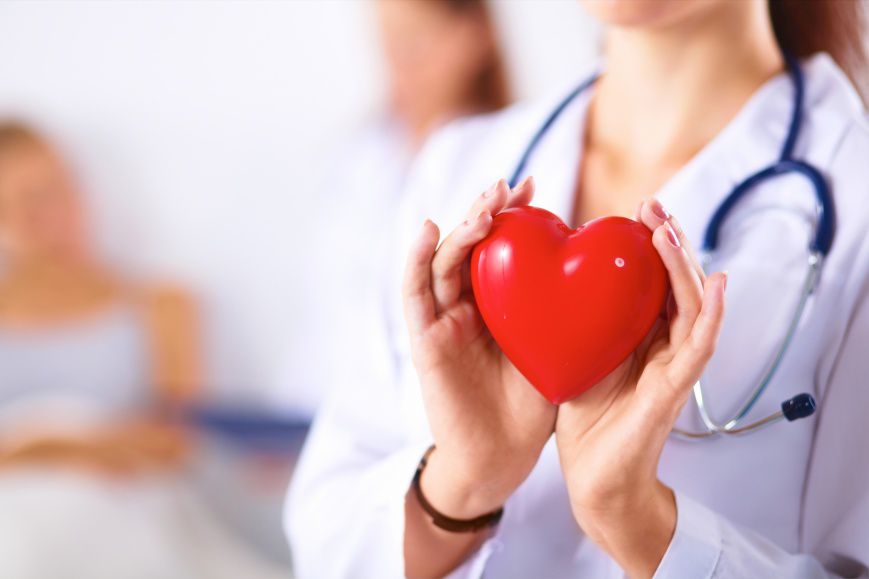
- Do not abuse strong coffee and alcoholic beverages;
- Refuse to eat too salty food;
- It is desirable to get rid of nicotine addiction;
- You need to go in for sports and reduce weight if it is excessive;
- It is necessary to include foods rich in potassium and iron in the diet, they will help strengthen the heart muscle.
Tachycardia itself is not a serious disease, but it is she who provokes the development a large number cardiovascular ailments.
To lower your heart rate quickly at home, you can induce a gag reflex or drink green tea with milk. Of the pharmaceutical preparations, it is safest to use Validol or Motherwort Infusion.
The pulse is a jerky oscillation of the walls of the arteries, which allows you to determine the frequency and level of intensity of contractions of the heart. At the same time, an increased heart rate is often observed, at which a person begins to be interested in the question of how to lower the pulse. And before considering options for solving the problem, you should study the causes of increased heart rate. In most cases, by eliminating them, you can achieve the desired result.
Normal heart rate
To understand when it is necessary to ask the question of a decrease in heart rate, it is necessary to consider normal indicators, deviations from which will be considered disorders in the work of the heart. So in an adult, the heart rate per minute at rest is 60-80 beats. In children, this figure is higher, at around 100-130. In older people, the opposite is true: for them, the norm is 65 beats / min.
Interesting! In women, the pulse rate always exceeds the same indicators, only in men by 5-7 units. During menopause, the heartbeat becomes even more intense, as a result of a decrease in estrogen levels.
With physical exertion, the acceptable heart rate rises, reaching 120-140 beats per minute with increased activity. If we talk about normal walking, then for her the norm will be 100 beats / min. This figure may be slightly higher depending on the speed with which the person is walking and the time.
Why does heart rate rise?
Immediately, we note that it can be physiological and pathological. In the first case, the role of causative factors are:
- stressful situation, adrenaline rush;
- eating, especially hot;
- drinking alcohol or drinks containing caffeine;
- physical overwork of the body;
- physical exercise;
- being in a stuffy room;
- increase in body temperature.
In all these situations, it is enough to wait a while for the heart rate to normalize. When the body restores its usual state, the pulse will also immediately decrease. But there is still a pathological increase in indicators associated with the presence of certain diseases in a person. The most common causes of heart palpitations are:
- cardiac diseases and heart defects;
- disruption of the endocrine system;
- diseases of the nervous system;
- infectious diseases;
- the presence of tumors in the body;
- obesity.
Here, if it turns out to reduce the pulse, then only for a while, because without eliminating the root cause of its increase, the indicators of the work of the heart cannot be normalized. In such situations, medical assistance is required, in the absence of which the condition will only worsen.
How to lower your heart rate

- eat small meals, but more often;
- enrich the diet with foods containing vitamins that are useful for heart function;
- spend more time outdoors, ventilate the room;
- reduce the intensity of physical activity;
- ensure for yourself a full sleep - at least 8 hours;
- to refuse from bad habits;
- drink less coffee and drinks containing caffeine;
- stabilize the emotional state, try to avoid stressful situations or react to them not so sharply.
If you need to lower the heart rate at a particular moment, then the procedure will be somewhat different. You will need to do the following:
- provide access to fresh air in the room;
- drink mint tea or rosehip broth;
- take a comfortable position and relax;
- try to stop thinking about problems;
- monitor breathing, controlling its regularity.
Important! Honey and blackcurrant also help with a rapid pulse. A tincture of valerian, hawthorn or motherwort will be useful.
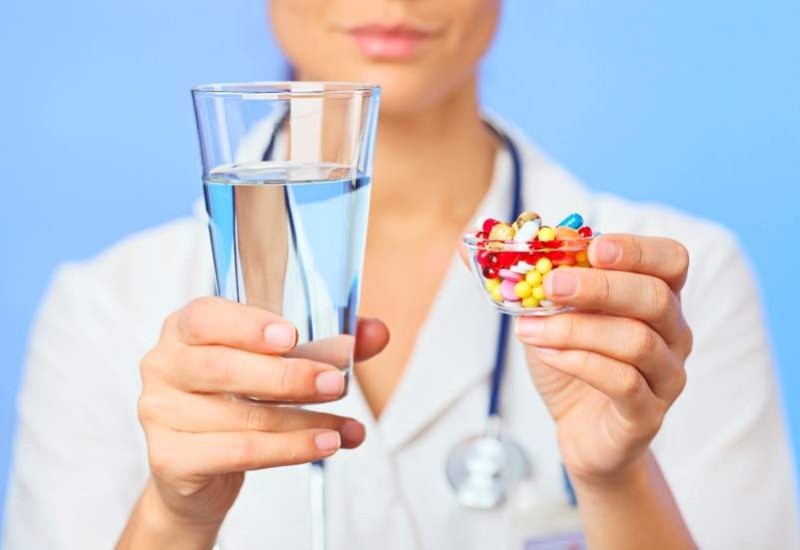
It is not always possible to do without drugs. If, after taking the above measures, the heart rate still does not decrease, consideration should be given to taking the appropriate medication. The safest and most effective means are:
- Validol;
- Corvalol;
- Valocordin;
- valerian and motherwort.
These drugs can be taken without a doctor's prescription by reading the attached instructions. In pharmacies, there are many other drugs that have a sedative effect. But here you need to select a remedy that has an effect on the frequency of heart contractions, reducing it.
Important! It must be remembered that no drug has an instant effect. Therefore, after taking it, you must wait about 30 minutes. Only if the heart rate has not returned to normal, you can take another dose. But it's important to avoid overdosing, so if a heartbeat is a concern, it's best to see a doctor.
When you need medical help
A rapid pulse often becomes a sign of any cardiological or endocrine diseases. In such cases, it is necessary to go to the hospital to get a qualified medical care, eliminate the cause that contributes to the increase in heart rate. Consider the signs of the need to visit a doctor:
- All of the above measures are useless or allow you to reduce the pulse only for a short time.
- Along with a rapid heartbeat, pain in the chest is observed.
- Increased fatigue appeared, performance decreased.
- There is shortness of breath, which is observed with minimal exertion and even at rest.
- There is increased sweating, circulatory disorders in the extremities.
- Puffiness.
These signs indicate a high likelihood of health problems, in particular with the cardiovascular system. In no case should they be left unattended. You definitely need to see a doctor.


